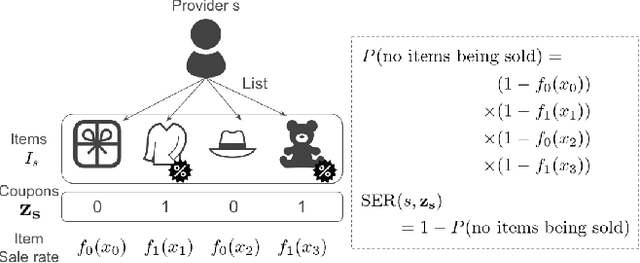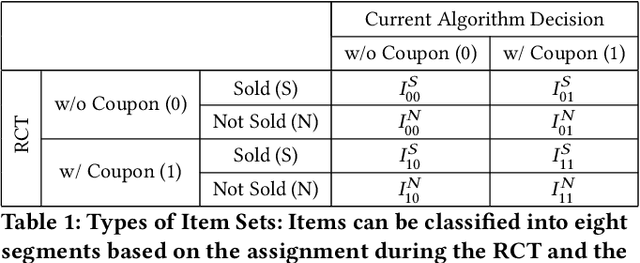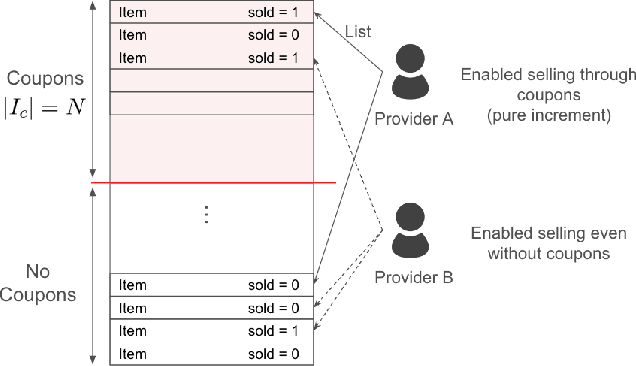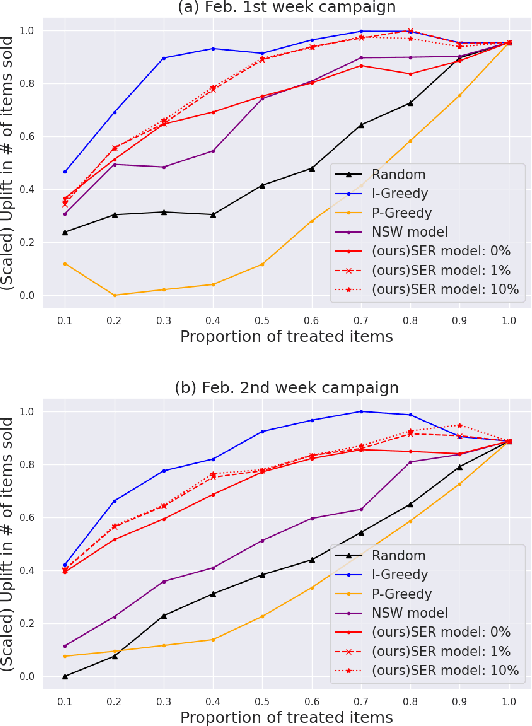Sho Sekine
Optimizing Item-based Marketing Promotion Efficiency in C2C Marketplace with Dynamic Sequential Coupon Allocation Framework
Sep 13, 2024Abstract:In e-commerce platforms, coupons play a crucial role in boosting transactions. In the customer-to-customer (C2C) marketplace, ensuring the satisfaction of both buyers and sellers is essential. While buyer-focused marketing strategies often receive more attention, addressing the needs of sellers is equally important. Additionally, the existing strategies tend to optimize each promotion independently, resulting in a lack of continuity between promotions and unnecessary costs in the pursuit of short-term impact within each promotion period. We introduce a Dynamic Sequential Coupon Allocation Framework (DSCAF) to optimize item coupon allocation strategies across a series of promotions. DSCAF provides sequential recommendations for coupon configurations and timing to target items. In cases where initial suggestions do not lead to sales, it dynamically adjusts the strategy and offers subsequent solutions. It integrates two predictors for estimating the sale propensity in the current and subsequent rounds of coupon allocation, and a decision-making process to determine the coupon allocation solution. It runs iteratively until the item is sold. The goal of the framework is to maximize Return on Investment (ROI) while ensuring lift Sell-through Rate (STR) remains above a specified threshold. DSCAF aims to optimize sequential coupon efficiency with a long-term perspective rather than solely focusing on the lift achieved in each individual promotion. It has been applied for item coupon allocation in Mercari.
Strategic Coupon Allocation for Increasing Providers' Sales Experiences in Two-sided Marketplaces
Jul 20, 2024



Abstract:In a two-sided marketplace, network effects are crucial for competitiveness, and platforms need to retain users through advanced customer relationship management as much as possible. Maintaining numerous providers' stable and active presence on the platform is highly important to enhance the marketplace's scale and diversity. The strongest motivation for providers to continue using the platform is to realize actual profits through sales. Then, we propose a personalized promotion to increase the number of successful providers with sales experiences on the platform. The main contributions of our research are twofold. First, we introduce a new perspective in provider management with the distribution of successful sales experiences. Second, we propose a personalized promotion optimization method to maximize the number of providers' sales experiences. By utilizing this approach, we ensure equal opportunities for providers to experience sales without being monopolized by a few providers. Through experiments using actual data on coupon distribution, we confirm that our method enables the implementation of coupon allocation strategies that significantly increase the total number of providers having sales experiences.
 Add to Chrome
Add to Chrome Add to Firefox
Add to Firefox Add to Edge
Add to Edge